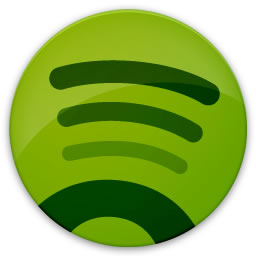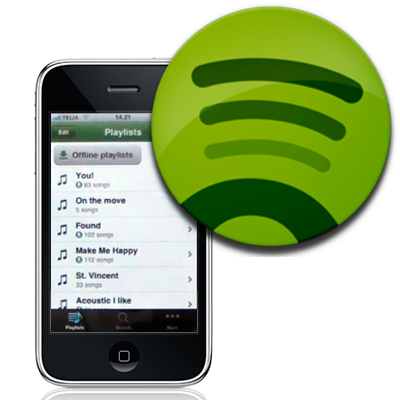Hello again.
I am writing to you whilst listening to Metronomy on Spotify streaming from my iPad Mini using a Bose headset. Musical zen, so to speak. Earlier, I had the whole thing running via my Denon RCD-N7 with the Airplay patch (but using Mordaunt-Short speakers). Life is good.
Earlier today, I got my new iPhone 6. Spotify works on it. My Bose headphones fit into the headphone jack (but, why, of course).
What is my gripe about then, you ask? Well, you see, I hold about 5 Apple shares (that’s about it, honest). And said company has recently (well, not so recently anymore) spent some $3 billion on acquiring Beats, “that” company fronted by the much (and rightly) revered Dr Dre and Jimmy Iovine, which sells mediocre (sorry, I meant to say, totally friggin’ awesome, headphones to sports superstars (and their fans). Oh, and they also have some sort of streaming service, apparently.
Mind you, my shiny new iPhone 6 nor my equally shiny new iOS 8 show any sign of a music streaming service. Or Beats. Or both. Or either. And today, the formidable (erm) TechCrunch ponders whether Apple may shut down the Beats streaming service (because of said absence of it on the new iPhone and iOS). And the mind boggles.
Let’s have a look at the lay of the land then:
There are a number of streaming services in the world. Spotify tops the charts, undoubtedly (unless your worldmap starts and ends in the US, then it’s probably Pandora). Their valuation is pegged somewhere at North of $10 billion. I do not know a single person that uses Beats streaming service (but then, I know, I am a middle-aged white European). However, my American friends, have you heard of Deezer? No, thought not. Alas, it has 20x the subscribers of Beats though (5m vs 250,000). Could you have bought them for $60 billion? I would guess so. But they don’t have the hardware or brand value, you say. And right you are. But, come on, a difference of nearly $57 billion for this? Really?
I would posit that the Beats acquisition was – a British technical term – complete bollocks. Let’s look further:
Here’s what Apple said (BTW, that Endgadget piece is enlightening on so many levels):
It was a no-brainer for us,” said Cue, outlining the three reasons in more detail. First, Cue says the Beats team is sensational, and will be a perfect fit for Apple; additionally, Dr. Dre is an incredible artist with an incredible ear.
$3.2b for a sensational team with an incredible ear. Yeah, right… Eddy Cue, you rule (or not).
Beats hardware is middle of the road at best (I know Dre would disagree, but he’d have to, no? He’s HipHop’s first billionaire because of it, doh…). For how much could you have had, say, Sennheiser (surely a good fit on hardware), a conservative, German, family-owned company? Would a bid of $3.1b have sealed it? Of off-shore money (which would’ve, what, halved that cost? Mmmh, I wonder (that’s a yes). See, the main (and a super-impressive feat at that) of Beats was its marketing and branding prowess. But Apple really doesn’t have anything it needs in that department, does it? It is the world’s most powerful brand (more than 2x its nearest competitor).
So what is our conclusion, half-way? Apple bought a brand (it didn’t need) that produces mediocre hardware (the one part where Apple always excelled and led everyone else) with the add-on of a also-ran streaming service. $3.2b worth? Erm, no! And now we are hearing that they’re going to shut down that streaming service (which desperate Apple lovers had quickly termed the main rationale of the genius Apple pulling off another one), You see, Apple has never been great in M&A. T (I’m available). <sigh/>

 A couple of weeks ago,
A couple of weeks ago,  Again, I am curious about the price point: the way it is, it would be a nice marketing deal for Spotify but it could be said that not much was going for taking exactly that offer vs just signing up as it is already. A little discounted however (with the difference paid for by 3’s marketing department) might change the ball game altogether…
Again, I am curious about the price point: the way it is, it would be a nice marketing deal for Spotify but it could be said that not much was going for taking exactly that offer vs just signing up as it is already. A little discounted however (with the difference paid for by 3’s marketing department) might change the ball game altogether…
 The labels are fairly happy,
The labels are fairly happy,  The much-discussed freemium model it is then: get them hooked on the free desktop app and convert them to paying users on mobile. It has long been known that users are more likely to pay if stuff is portable (I can still recall the disbelief of music executives when they realized that people would pay more for a monophonic ringtone than for a full-blown music track). And whilst now the link between (free) basic service on the desktop and (premium) mobile service is new, the principle is old and proven: and it is simply added value (plus the little things like being used to paying on mobile and having convenient existing billing models in place). If the user perception is that they are getting value for money, they are willing to pay. And if it is for such a fairly special thing such as music (don’t we all love and nurture our very own musical mix tastes?), the step is even easier to make.
The much-discussed freemium model it is then: get them hooked on the free desktop app and convert them to paying users on mobile. It has long been known that users are more likely to pay if stuff is portable (I can still recall the disbelief of music executives when they realized that people would pay more for a monophonic ringtone than for a full-blown music track). And whilst now the link between (free) basic service on the desktop and (premium) mobile service is new, the principle is old and proven: and it is simply added value (plus the little things like being used to paying on mobile and having convenient existing billing models in place). If the user perception is that they are getting value for money, they are willing to pay. And if it is for such a fairly special thing such as music (don’t we all love and nurture our very own musical mix tastes?), the step is even easier to make.


